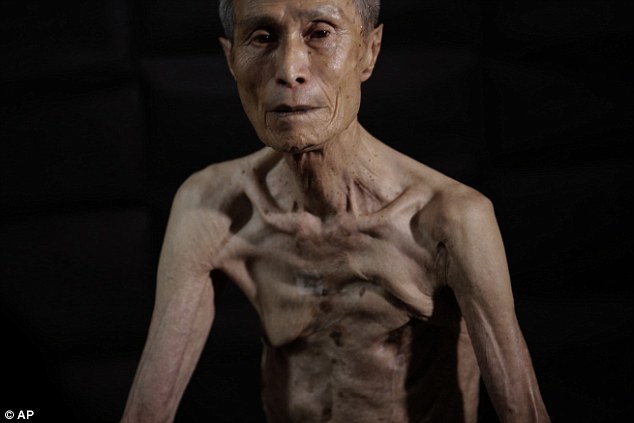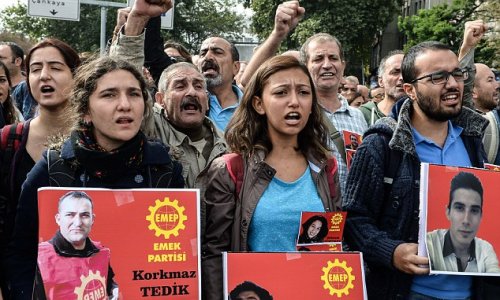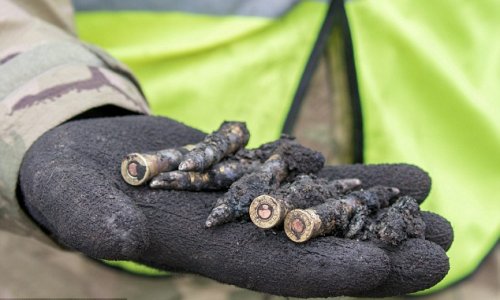The frail 86-year-old body of Sumitery Taniguchi is a web of scars, that have criss-crossed his skin for 70 years.
The elderly man was one of the many tens of thousands of victims of the atomic blast that destroyed the Japanese port city of Nagasaki, on August 9 1945.
He is still unable to fully straighten his left arm, while his wife rubs moisturising cream onto his scars every morning to reduce the irritation.
Three of his ribs half rotted away following the attack and still press against his lungs, leaving unnatural dents and swellings in his scrawny chest.
He has revealed his scars as part of his work with the Nagasaki survivors' group that he leads, in the struggle against nuclear proliferation.
He and his group hope that no one will ever again suffer the pain of a nuclear blast.
Mr Taniguchi was just 16 when the five-tonne plutonium bomb, known as the ‘Fat Man’, exploded 500 metres above his home city of Nagasaki, on the western side on the Japanese island of Kyushu.
The city was one of Japan’s most important ports, providing vital access to and from Shanghai.
It was two minutes past noon when the bomb detonated, the second such atomic blast unleashed on Japan in just three days.
Just 72 hours earlier, the first nuclear weapon ever used for warfare fell on Hiroshima. The two attacks killed up to 226,000 people between them.
On the job as a letter carrier at the time, the powerful blast threw the teenage Mr Taniguchi from his bicycle.
He was just over a mile from the epicentre of the blast that killed more than 70,000 people.
Dazed in the wake of the blast, he wandered aimlessly for three days, completely unaware of the severity of his injuries.
He could feel something like a ragged cloth hanging from his back, shoulder and arm, which he later realised was his own skin.
The leaflets warned the Japanese people that more atomic weapons would be used ‘again and again’ to destroy the country, unless they ended the war.
Six days later, Japan surrendered.
‘I want this to be the end,’ said Mr Taniguchi, weak-voiced and struggling for breath, as he slipped his shirt back over his scars.
(dailymail.co.uk)







www.ann.az
Follow us !











